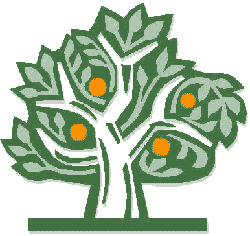Tracing Your Ancestry
Ever wonder why great aunt Sylvia never married? Or why your mother and grandmother always whispered when talking about your long-deceased grandfather? You may be surprised (or maybe not) to learn how much one generation affects the next. And the next. And so on. One way to find out the family secrets is to trace your ancestry.
Why would you care about long-dead people, even if they were your relatives?
Because the past informs the present. Your characteristics, your family's educational background, your family's income, where you grew up, how you lived all stem from those long-ago relatives and what they did.
You don't agree? Okay, let's start with where you live. Let's say you grew up in a big city, Chicago, for example. How did your parents get there? Job transfer? Or did one of them grow up in the Windy City? Let's say your mother grew up in Chicago, met your father in college and they settled there. You visit your grandparents frequently as well as aunts, uncles, and cousins. Now how did your grandparents get there? Let's jump back in time and say that your great, great grandparents emigrated from Ireland in the early 20th century. What did they bring from Ireland that you still experience today? Drinking? Catholic religion? A recipe for Irish stew? A raucous St. Paddy's day celebration? See, your ancestor's affect your life today even if you didn't realize it.
Okay, you're convinced, but you don't know that much about your ancestors. Your surname sounds English so maybe your ancestors came from the UK. One little-known fact about the heritage of the majority of Americans is that more are descended from Germans than any other country. The two world wars, however, encouraged those with German names to Anglicize them to avoid discrimination (remind you of any people being ostracized today because of the nationality?). What's more, you're descended from more and more people the farther you go back so you likely have a blend of nationalities in your background.
Aren't getting a bit curious now about where you came from?
Luckily, help's at hand.
The first thing to do is to interview living members of past generations of your family. Sylvia Nash writes an interesting blog titled, "Past and Present: Writing Mysteries Suspended in Time." Her post on January 2 recommended interviewing your living ancestors, something most people don't think of until it's too late. Nash lists some basic questions to ask and adds links to how to interview.
To go beyond those still living, consider joining Ancestry.com. Once you join, you may find other family members interested in participating and adding information, too. They can use your subscription as long as you give them the ID and password. Only one person, however, can be on the site at one time.
Starting with the names, birth and death dates, city, state, and country of those ancestors you know or as much as you know about them, Ancestry allows you to search birth, marriage and death records, census and voter lists, military records, immigration records, such as ship manifests, in this country and worldwide if you choose that subscription. But the most helpful feature is the ability to post on message boards and connect with other people searching the same ancestors.
What a surprise it is to learn that your father's great grandfather was a coal miner in Virginia or that a distant grandmother emigrated from Poland. Or that these early settlers farmed in Iowa.
I learned so much about my ancestors that I'm writing mystery fiction using my distant grandfather, Joseph Bimeler, who led a beleaguered band of religious dissedents out of Germany and founded a town in Ohio as a character in the stories. That led me to visit the town, Zoar, that still stands full of museums and reenactors who bring the past to life for visitors.
See, you might embark on a whole new career if you traced your ancestry. I can promise you, though, you'll find an entrancing journey along the way.
Mary Dolan explores her ancestry in next week's blog, discovering untold family secrets!




